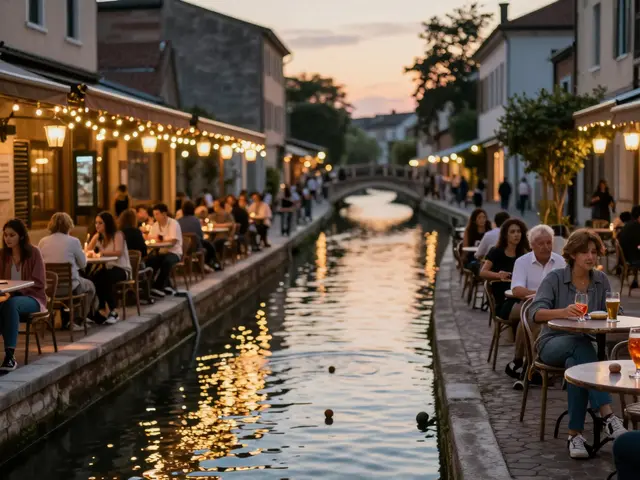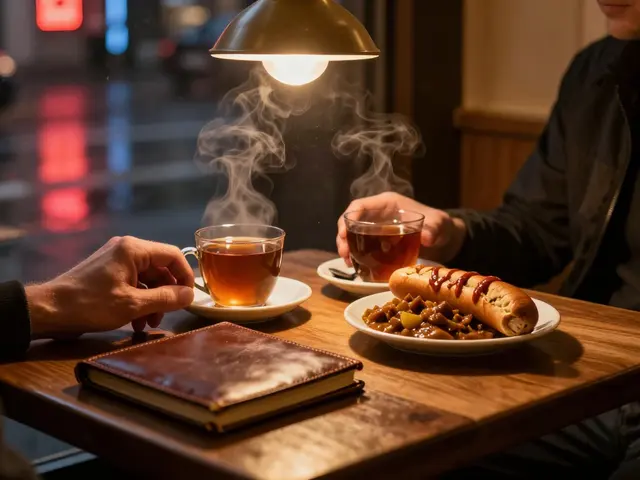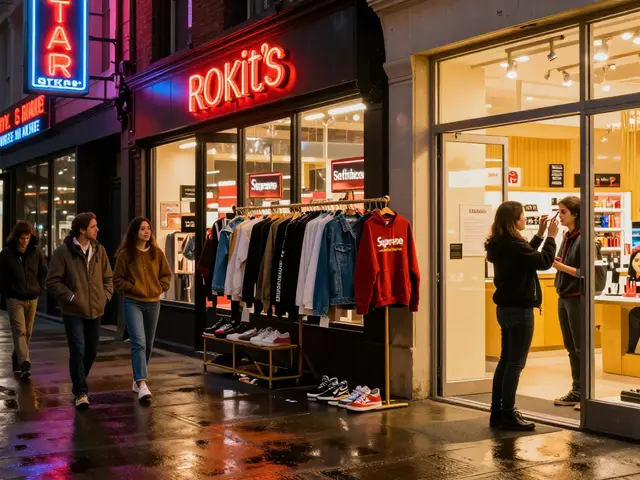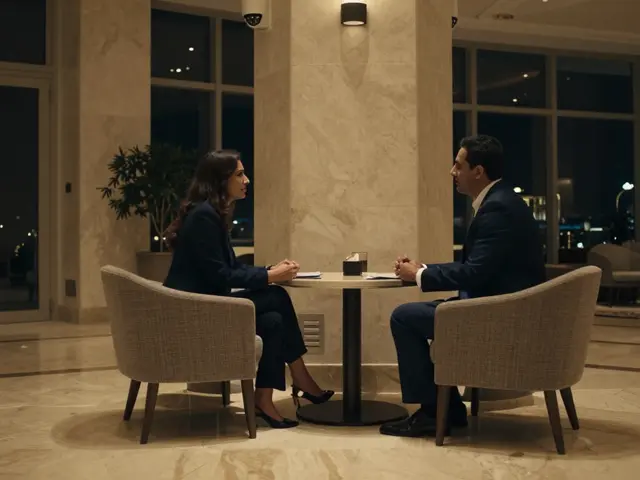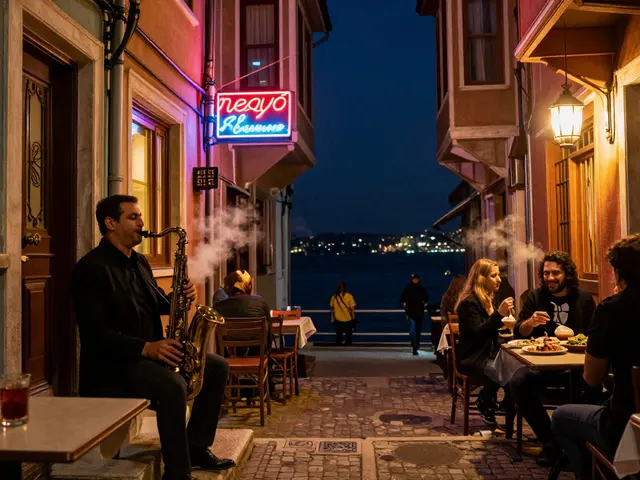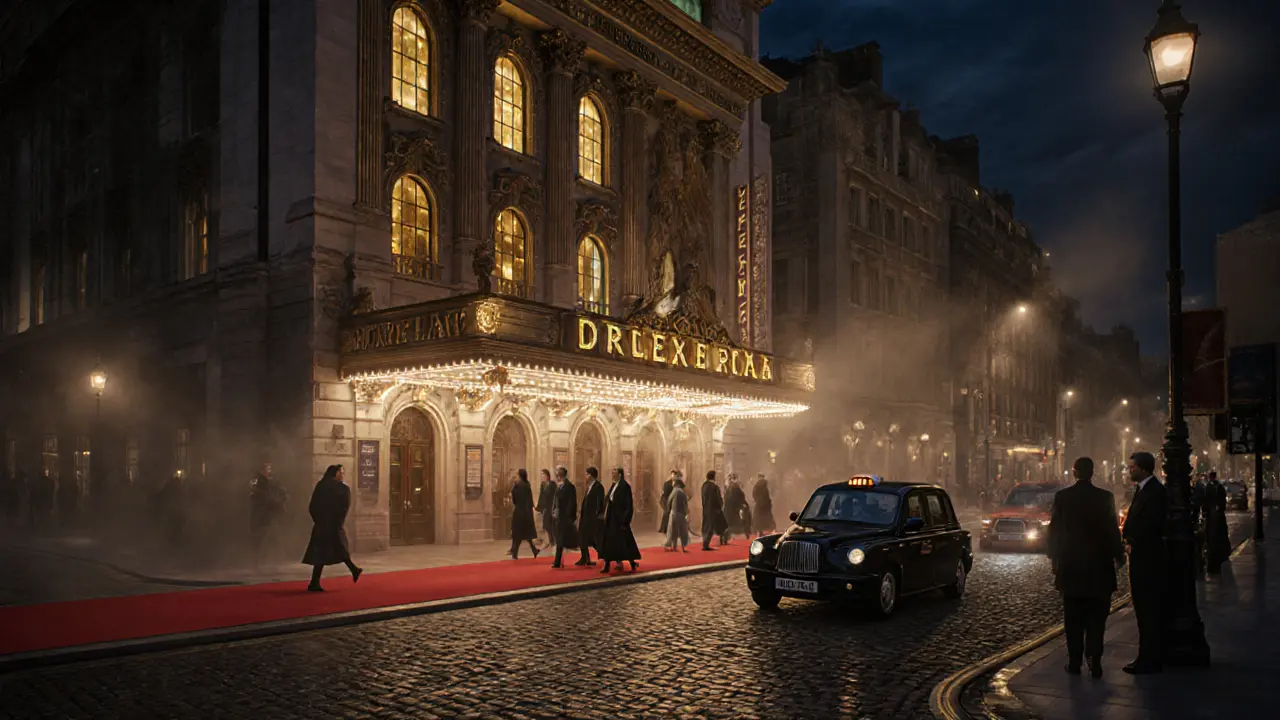
After a long day of sightseeing or working in the city, nothing beats the buzz of a great theatre show in London-especially when the night doesn’t end when the curtain drops. The West End isn’t just about the plays and musicals. It’s a whole ecosystem of late-night energy, hidden pubs, rooftop lounges, and cozy bistros that come alive after the final bow. If you’re a theatre lover, your night out should start with a great performance and end with a drink that feels just as memorable.
Start with the Show: Where to See the Best Theatre in London
The magic begins at the theatre. London’s West End has over 40 major venues, but not all are created equal for the kind of night you want. For classic musicals, Theatre Royal Drury Lane is where you’ll find long-running hits like Les Misérables and The Lion King. The grandeur of the building alone makes it worth the trip. If you prefer something edgier, head to the National Theatre on the South Bank. Their productions often push boundaries-think modern retellings of Shakespeare or bold new plays that spark conversation.
For intimate, high-quality drama, the Almeida Theatre in Islington is a favorite among critics and regulars. It’s not in the heart of the West End, but the journey is worth it. And if you’re looking for a bargain, check out Trafalgar Studios or Menier Chocolate Factory-smaller spaces, lower ticket prices, and often the same stars you’ll see on Broadway.
Book tickets early. Popular shows sell out weeks ahead, especially on weekends. Use official sites like London Theatre Direct or TodayTix to avoid scams. Many theatres also offer same-day discounted tickets through the TKTS booth in Leicester Square-just arrive before 4 PM for evening shows.
Post-Theatre Drinks: The Best Bars Near the West End
Walking out of a theatre at 10:30 PM, you’re not ready to go home. You want a place that feels like an extension of the show-warm, lively, and full of people who just got lost in a story. The best spots are clustered around Covent Garden, Soho, and Shaftesbury Avenue.
The Groucho Club in Soho has been a haunt for actors, writers, and directors since 1985. It’s not flashy, but it’s real. No photos allowed, no loud music-just good wine, strong cocktails, and the kind of quiet chatter that happens after a powerful performance. Membership is required, but you can get in as a guest if you’re dining or attending a show nearby.
If you want something more casual, The Punch Bowl in Mayfair is a historic pub with a retro vibe and a great gin selection. It’s been around since 1730, and the staff know how to pair a drink with your mood. Got a hankering for something sweet? Try the Chocolate Martini-it’s become a cult favorite after Wicked performances.
For a rooftop experience, head to The Sky Garden at 20 Fenchurch Street. It’s a short walk from the City, but the 360-degree view of London’s skyline is unforgettable. Free entry, but you must book ahead. It’s perfect if you saw a grand opera or a Shakespearean tragedy and want to reflect under the stars.
Hidden Gems: Where Locals Go After the Curtain Falls
The tourist traps are crowded. The real magic? It’s in the back rooms and alleyways.
Bar Termini in Soho is a tiny Italian bar that doesn’t take reservations. You’ll stand shoulder-to-shoulder with actors, stage managers, and directors sipping espresso martinis and arguing about the latest Hamilton cast change. The espresso machine never stops. The staff remembers your name after one visit.
Down a narrow lane behind the Shakespeare’s Globe is The Anchor, a 17th-century pub with wooden beams and a fireplace that’s lit even in summer. It’s quiet after midnight, and the barman pours a perfect pint of Guinness that tastes better after a night of Macbeth.
Don’t miss El Vino on Fleet Street. It’s been serving wine since 1890. No menu, no fancy labels-just a chalkboard with five wines by the glass. Ask for the Pinot Noir from Burgundy. It’s the one the theatre crowd drinks after a long night of understudies and standing ovations.
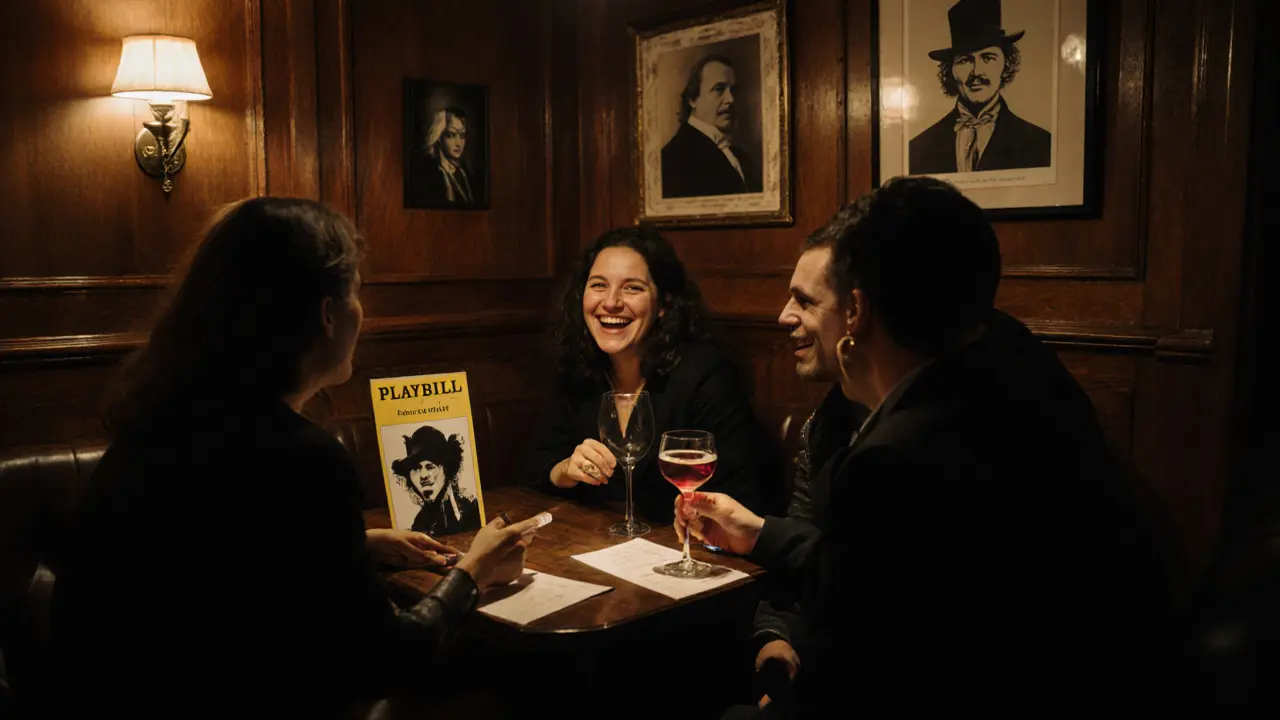
Food That Feels Like an Encore
You don’t need a five-course meal after a show. You need something quick, satisfying, and full of flavor.
St. John Restaurant near Smithfield is famous for its roast bone marrow and parsley salad. It’s open until 11 PM on weekdays and midnight on weekends. The vibe is quiet, the lighting dim, and the food tastes like comfort after a tearful performance.
For something faster, grab a late-night burger at Barrafina in Soho. Their Spanish-style patties come with smoked paprika aioli and crispy fries. It’s open until 1 AM, and the chefs will slide you an extra fry if they see you’re still in your theatre coat.
And if you’re feeling fancy, The Ivy Theatre Restaurant in Covent Garden has a menu designed by the same team behind the West End’s top dining spots. Order the truffle pasta. It’s rich, warm, and the perfect way to end a night of drama.
What to Wear: Dress Code That Doesn’t Feel Like a Costume
Forget the idea that you need to wear a tuxedo to the theatre. London’s crowd is smart, not stiff. For a matinee, jeans and a blazer work fine. For an evening show, a nice dress or a tailored shirt with dark trousers is enough. No one will judge you for skipping the heels.
But here’s the real rule: wear something you feel confident in. The best nights start when you’re not worrying about your outfit. And if you’re heading to a bar after? Skip the glitter. You’ll thank yourself when you’re not wiping glitter off your coat at 2 AM.
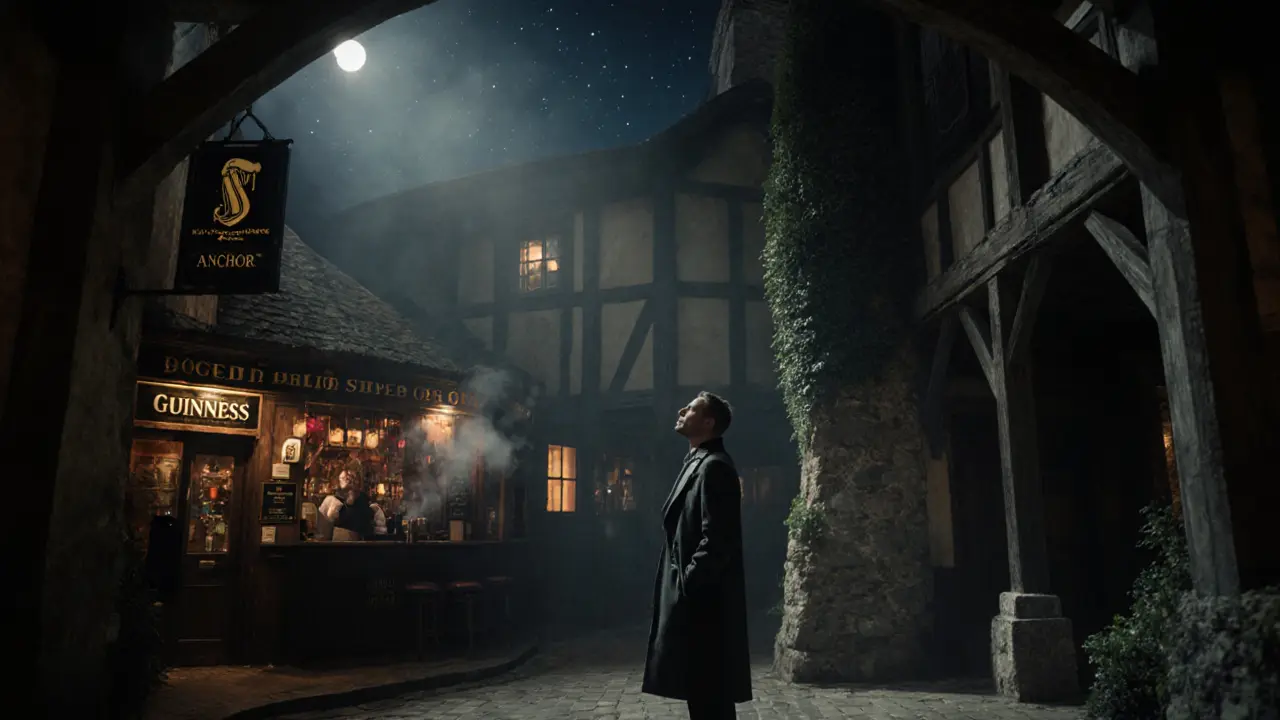
Pro Tips for the Ultimate Theatre Night
- Arrive at least 30 minutes early. London theatres don’t always let you in late, and you’ll miss the best parts of the pre-show buzz.
- Bring a light jacket. The West End can get chilly after dark, even in summer.
- Use the London Underground after 9 PM. The Night Tube runs on weekends, so you won’t need a taxi unless you’re heading far out.
- Check for post-show Q&As. Many theatres host short talks with the cast-free with your ticket. It’s the best way to understand the show deeper.
- Don’t rush. Let the night breathe. One drink, one bite, one quiet moment to let the story sink in.
What Not to Do
Don’t book a table at a fancy restaurant right after the show. You’ll be rushed, and the food won’t taste as good. Don’t try to cram in three bars in one night. Pick one that matches your mood. And never, ever check your phone during the performance. You’ll ruin it-for you and everyone around you.
What’s the best time to see a theatre show in London?
Evening shows usually start at 7:30 PM, which gives you time to have dinner and get to the theatre without rushing. Weekend performances often start at 7 PM, so plan accordingly. If you want a more relaxed night, consider a matinee on Saturday or Sunday at 2:30 PM-less crowded, cheaper tickets, and you still get a full night out after.
Are there affordable theatre options in London?
Yes. Many theatres offer £20 tickets through rush lines or same-day deals. The TKTS booth in Leicester Square sells discounted tickets for same-day shows. Smaller venues like the Menier Chocolate Factory or the Arcola Theatre often charge under £30. Student and under-26 discounts are widely available-always ask.
Can I go to a theatre show alone?
Absolutely. London’s theatre scene is one of the most welcoming for solo attendees. Many people go alone to see a show they’re passionate about. Bars like Bar Termini and The Groucho Club are used to solo guests. You’ll often end up talking to someone who saw the same performance-and you’ll leave with a new friend.
What’s the difference between West End and Off-West End theatre?
West End theatres are the big, commercial venues in central London, usually with long-running musicals and big-name stars. Off-West End refers to smaller, independent theatres like the Almeida, Soho Theatre, or the Royal Court. These places often stage new plays, experimental work, or reimagined classics. Tickets are cheaper, the atmosphere is more intimate, and you’re more likely to see a performance that changes how you think about theatre.
Is it worth going to a theatre show if I don’t speak English well?
Yes. Many West End shows rely on visuals, music, and physical storytelling. Musicals like The Lion King or Cats are easy to follow without understanding every word. Even dramas often use strong emotion and movement to carry the story. Some theatres offer captioned or audio-described performances-check their website before booking.
Next Steps: Plan Your Perfect Night
Start by picking one show you’ve been curious about. Not the most popular one-just the one that calls to you. Then pick one bar you’d like to try after. Don’t overthink it. Walk to the theatre. Sit back. Let the story pull you in. After the lights come up, take your time. Order a drink slowly. Talk to the person next to you. Let the night unfold. That’s what theatre in London is really about-not just the performance, but the whole evening that follows.

